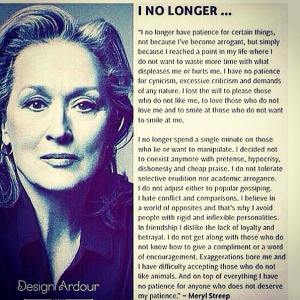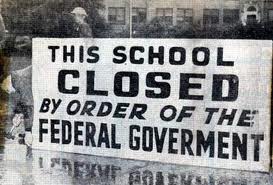It was 50 years ago on August 28, 1963 that Martin Luther King, Jr. delivered his now famous speech on the steps of the Lincoln Memorial. The reflecting pond between the Lincoln and the Washington memorials was packed with the presence of over 250,000 civil rights supporters of all races and religions.
Yahoo! Voices sent me two invitations to write about that day. They wanted writers to create a recollection of where they were and what they were doing at the time of the speech. It took a bit. Life has put a lot of pebbles into the stream since then and it takes a little doing to clear away the debris to bring back the recollections.
August 28, 1963 was during Summer break and the speech occurred at the height of the day. I sat in my living room watching the events of the march unfold on television. As with each of his speeches, I was moved and inspired by King’s words. We all wanted to believe that his dream wasn’t a mere dream but a vision of an actual future that would unfold in that century.
By virtue of the fact that the March on Washington was multi-racial and the causes of freedom and equality ranged from pay to women’s rights to color to education to opportunity for all to worker rights and more, it was more than about race. It was more about those who were disenfranchised becoming those who fully participate in what was supposed to be the whole American Dream and the guarantees. It was about realizing that Dream contained in our founding documents and the principles upon which this country was founded. We need these types of periodic reminders. After a few decades, our minds put such ideas on the back burner, especially when we’re not living those principles on a daily basis. As months and years passed, the pressures that made the speech compelling at its delivery dissipated. It became inspiring words and concepts. And then it became concepts talked about during Black History Month or on King’s birthday in order to simply bleat the syllables.
The “Why” of It
The March on Washington was essentially a culmination of the events that began in the 1950s. The efforts of the Freedom Riders, the lunch counter sit-ins, the peaceful non-resistance, the assaults with fire hoses and police dogs, the Little Rock Nine being escorted to Central High by National Guard troops, the children killed in the church bombings, not to mention the many civil rights workers martyred for their efforts to create a wholesome place for all to live. Those were the things that needed to be overcome. And those (plus many other individual efforts) formed the fabric of the levers to open the doors of opportunity.
Interruptions and Distractions
Unfortunately, there were intervening circumstances that interfered with achieving the Dream. The war on drugs seemed to focus on Black neighborhoods. That war in turn plunged the residents of those environs into the depths of lack and bleary-eyed hopelessness. Substandard products emerged from those neighborhoods. They brought with them a desire to keep people of color in their places because they were not qualified or else only qualified to serve and not lead. By the time we as a society reached the 1980s, it was difficult to find a Black face as a leader in any place except religion and politics.
The Silence
But there were the quiet numbers who strove to be the exceptions. The silence grew to the point that many forgot about the demonstrations and the non-violent principles of those early days of reaching for recognition and admission – two commodities that were supposed to be available by right. Lack of consistent reinforcement and training on principles of professionalism and leadership were put on an even steeper slope. Those who had those ideals as part of their DNA, moved forward – quietly – and proved their value. They made positive inroads and positive examples of themselves that empowered others to also enter the doors of opportunity. Quietly it has been happening at a very slow pace. It’s been occurring so quietly that barely anyone notices today except when it leaps in front of you during a news maker interview and the subject is a notable scientist or other nontraditional professional.
Old Lessons on the Road
Unfortunately, some of the lessons were forgotten. The old detractors survived the passage of time and became the ones who created new barriers that only the most extremely qualified could pass. Although many White churches talked wonderful principles of acceptance and brotherly love, they were hard pressed to actualize those concepts when put to the test. The result became shunting their Black members and members of color into situations of being passed over for acknowledgement or displaced in activities in deference to another who was not of the same racial makeup.
Lessons in acceptable comportment changed or lost. The hip-hop age, the acid rock, the protest age and rap song protests and statements displaced reasoned speech and debate except during elections. Instead, loud and brash being shouted became the way to do things. Talking and conversation became how well one could drown out the other party or how many times they could be interrupted so as to not get a word in edgewise. Critical thinking skills crumbled. People (of all races) expected to be spoon fed information instead of reasoning out the solution for themselves. One’s GPA became more a testament of how well the student could bully the instructor into giving them an “A” compared with demonstrated more than a 90 percent comprehension of the subject when tested.
Daydreaming
So here we are 50 years later. We want to talk about the major strides that have occurred during this half century of progress. But to do so would only be delusional. While the blatant discrimination and signs of it no longer exist, the stench of Jim Crow still plagues us. It’s infected the waters drunk by our new immigrants so that they replace the hard-core racists of the past. Some of their open statements are so blatantly obnoxious that they cause the listener to gag in shock.
The standard of living continues to drop because the minimum wage continues to not stay apace with the consumer price index or cost of living index. More neighborhoods become enclaves of ethnic clusters – ghettos – where people strive to find pride in their environs. Unfortunately, if the majority of the population is Black, it is considered a dangerous place. The presumption that gangs and drugs are the mainstay with undisciplined behavior and unbridled lack of self restraint are the basis of the place. Don’t go there late at night.
Although there are many more faces of color, particularly Black of all hues, portrayed as many types of characters on both the small and large screens, and although there is a higher likelihood of finding Black and Brown faces in managerial positions in businesses, there is still an atmosphere of marginal acceptance if you are not an employee but of the same race. While the focus should be on doing the job at hand with professionalism, it’s delivered only to those who appear to be qualified to receive that deference.
Dream or Vision – and When?
It was a noble speech. King inspired us in his Southern Baptist preacher style of speaking. He brought people to their feet and stirred them to follow him to whatever heights he verbally painted for those who listened and were willing to be moved. Again I have to ask, was it a dream he was having, a collection of unconscious delusions with very little based on reality? Or was he actually sharing a prophet’s vision of a Tomorrow that was somewhere on the Horizon of the Future?
If it was actually a prophet’s vision, then it’s time for us to become parents of future generations and resume the training and lessons of what type of work needs be infused into making the vision a reality. There are lessons that are in desperate need of being learned. There are rules of etiquette that need to be re-learned and put to use. And there are lessons in how to be a leader that need to be taught at every juncture of our existence, whether at home, school, vocational training, or work.
We need to stop thinking about how nice it was that King said those words and then put the speech back on the bookshelf to collect more dust. It’s time to put the wheels of progress back into motion so that we resume our forward movement and growth of our rights. But most of all, it’s time to use the greatest tool for making the dream, the vision, a reality. It’s time to develop the right type of communication in order to say, “I am qualified; I belong here,” and then open the door.










